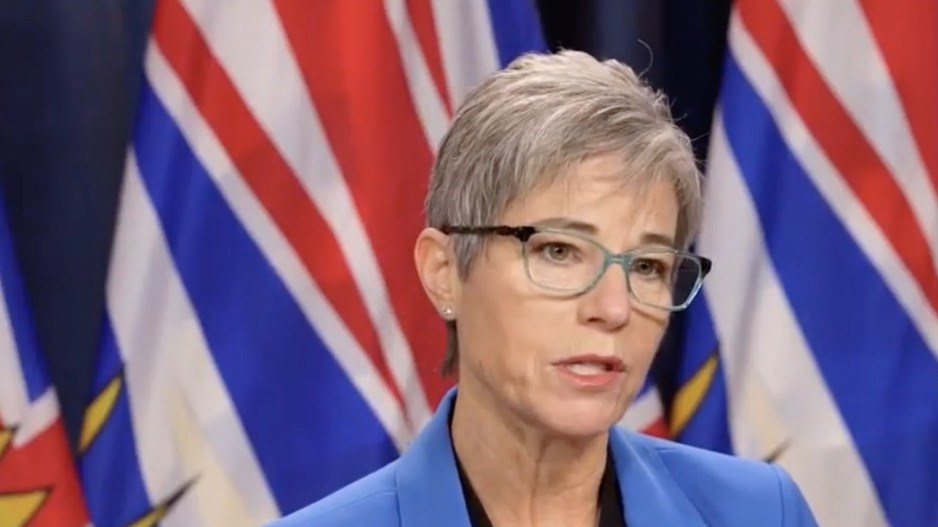The B.C. government is upping its projected deficit to $13.6 billion for the 2020-21 fiscal year as part of efforts to keep the economy afloat amid the COVID-19 crisis.
Victoria had been forecasting a deficit of $12.8 billion as recently as September, just prior to the call of the fall provincial election.
“It is, however, going to be a while before I stand here with an update that looks anything like the pre-pandemic province that we new,” Finance Minister Selina Robinson said during a Thursday (December 17) media briefing.
In its fall fiscal update, the government is attributing much of that difference to $2 billion in additional spending aimed at new assistance for British Columbians.
Most of that spending — $1.7 billion — is attributed to the B.C. Recovery Benefit offering $1,000 to qualifying families and $500 to qualifying individuals.
The benefit came about as a campaign promise from the BC NDP, which secured a majority government in October.
Another $110 million of spending has been earmarked for the B.C. Recovery Supplement for income and disability assistance clients, and $190 million for the Increased Employment Incentive program offering a 15% tax credit.
Before the pandemic upended the global economy, the B.C. government had been predicting a surplus of $227 million.
Meanwhile, the province is taking a more cautious approach to economic growth projections than some economists.
It estimates real GDP will contract 6.2% for 2020 before rebounding with 3% growth by the end of 2021.
A forecast released Tuesday by RBC Economics pegs B.C.’s economy contracting 5.3% in 2020 with 5.1% growth in store for 2021, exceeding the national average of 5%.
“I believe prudence is warranted under these unprecedented circumstances and with the high degree of uncertainty that continues,” Robinson said.
Revenue is forecast to be $57.4 billion, down $3.2 billion from estimates in the 2020 budget released in February.
Provincial sales tax revenue is down $135 million.
Personal tax revenue is expected to increase by $171 million, while corporate tax revenue is up $78 million.
Although much of the economy has been thrown for a loop throughout the year, both federal and provincial governments have introduced measures to support individuals and businesses amid the pandemic.
The fiscal update points out that while jobs in construction (-34,400 jobs), and wholesale and retail trade (-26,500 jobs) took a major hit from February to November, other sectors have weathered the COVID-19 crisis well.
The workforce in professional, scientific and technical services saw a boost of 17,100 jobs during that same time period, while manufacturing added 9,500 jobs, and mining, oil and gas added 9,300 jobs.
B.C.’s current unemployment rate stands at 7.1% compared with 5% in February.
“The labour market has so far performed better than expected, however, the path forward remains uncertain. And those sector heavily impacted by the virus are not anticipated to be operating at full capacity for some time,” Robinson said.
Profit for the Insurance Corporation of B.C. is now expected to hit $410 million — up $324 million from a year earlier.
“This is a good thing for all drivers in British Columbia,” Robinson said.
In the fiscal update, the province attributes that jump due to savings from “lower claims costs because of fewer accidents and a recovery of investment losses sustained at the end of 2019-20.”
However, Robinson said government is still reviewing the ICBC figures before determining what a rebate might look like for ICBC customers as the pandemic saw traffic on the roads decline significantly, especially at the outset of the pandemic, as more people began working from homes or else businesses faced lockdown restrictions.
And while housing sales dipped in the immediate aftermath of spring lockdowns, by November the province had tallied 10,432 unit sales compared with 6,726 unit sales in February.
Robinson said British Columbians can expect the next update on provincial finances on April 20, 2021, when the next budget is scheduled to be delivered.




